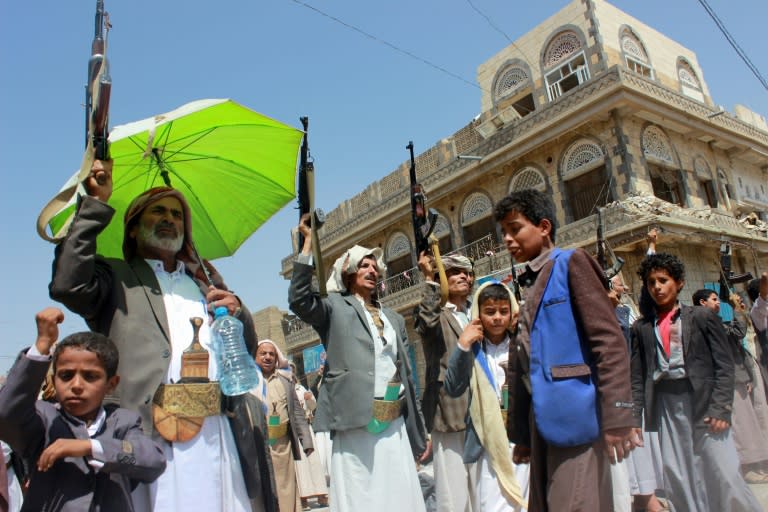Uncertainty over long-awaited Yemen peace talks
Uncertainty hung Thursday over long-awaited talks in Geneva between Yemen's warring parties, as the rebel delegation refused to attend until its demands are met. UN mediator Martin Griffiths, who said Wednesday the meeting offered a "flickering signal of hope" of an end to the years-long conflict, had to postpone their scheduled start. Yemen's Huthi rebels said they would not join the talks until the UN meets conditions that include transporting their wounded to Oman for treatment and a guarantee that delegation members will be allowed to return to rebel-held Sanaa from Geneva. The rebels accused the UN of failing to keep promises in this regard. The talks are meant to be the first since 2016 when 108 days of negotiations between the government of Abedrabbo Mansour Hadi and rebels failed to broker a deal. But with government representatives already in the Swiss capital since Wednesday, the rebels remained stranded in Sanaa amid claims the Saudi-led coalition backing Hadi was preventing them from leaving. According to the Huthis' Al-Masirah TV, the UN had been unable to "secure authorisation" from the coalition for a plane to transport the rebel delegation, along with wounded insurgents, out of Yemen. While the Huthis control Sanaa and much of northern Yemen, the coalition controls the country's airspace. Asked about the Huthi charges, Griffiths said Wednesday: "We are working on that." On Thursday, an AFP journalist saw the envoy entering the Geneva hotel hosting the Yemen government delegation. Griffiths had told journalists he would begin informal consultations" with the government team, led by Foreign Minister Khaled al-Yamani, while the rebels make their way to Switzerland. But when the two parties eventually meet, there would be no "formal negotiations," the envoy stressed, merely exploratory talks on how to get the parties back to the table. The UN Security Council on Wednesday urged both sides to "take a first step towards ending a conflict that has brought severe pain and humanitarian suffering to the Yemeni people". Griffiths was hopeful that the talks, expected to last a few days, "will begin to send a flickering signal of hope" to the people of Yemen. "There is a chance for some tangible progress," he insisted. The government and rebels, however, have said they expect no breakthrough. The foreign minister told AFP this week that the chance of face-to-face sitdowns between the two delegations was slim to none. - 'Collateral damage' - All previous attempts to resolve the Yemen war have failed. Griffiths is the UN's third Yemen envoy since 2014, when the Huthis overran the capital Sanaa and drove Hadi's government into exile. The following year, Saudi Arabia and its allies formed a powerful regional military coalition to back Hadi's government in its fight against the Huthis. The conflict has left nearly 10,000 people dead and pushed the Arab world's most impoverished country to the brink of famine. On Thursday, the Saudi-led coalition acknowledged there may have been "collateral damage" from August 23 strikes the UN said killed 26 children south of the port of Hodeida. A day earlier, Saudi Arabia shot down a ballistic missile fired by Huthi rebels, with shrapnel wounding 26 people including two children, the coalition said. On Thursday, 16 humanitarian NGOs urged French President Emmanuel Macron to explicitly condemn any attack that causes civilian deaths in Yemen.





